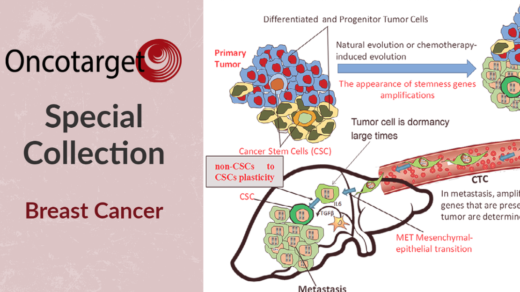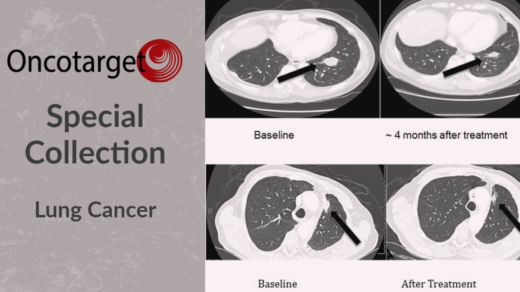In this new study, researchers investigated the role of Osteopontin splice variants in cancer metastasis.
—
Mitochondrial biogenesis, the process of increasing the size and number of mitochondria within cells, plays a crucial role in cancer metastasis. Metastasizing cells exhibit a unique metabolism that differs from the well-known Warburg effect observed in primary tumors. While primary tumors primarily rely on glycolysis for energy production, metastatic cells rely on oxidative phosphorylation and ATP generation for short-term energy needs. However, over longer time frames, mitochondrial biogenesis becomes a prominent feature in the success of metastasis.
In a new study, researchers Gulimirerouzi Fnu and Georg F. Weber from the University of Cincinnati’s James L. Winkle College of Pharmacy investigate the connection between short-term oxidative metabolism and long-term mitochondrial biogenesis in cancer metastasis. They hypothesized that Osteopontin splice variants, specifically Osteopontin-c, stimulate an increase in mitochondrial size through the activation of specific signaling mechanisms. On December 1, 2023, their new research paper was published in Oncotarget, entitled, “Osteopontin induces mitochondrial biogenesis in deadherent cancer cells.”
“Over longer time frames, mitochondrial biogenesis becomes a pronounced feature and aids metastatic success. It has not been known whether or how these two phenomena are connected. We hypothesized that Osteopontin splice variants, which synergize to increase ATP levels in deadherent cells, also increase the mitochondrial mass via the same signaling mechanisms.”
The Role of Osteopontin Variants in Mitochondrial Biogenesis
Deadhesion, the process of detaching cancer cells from the extracellular matrix, is known to induce metabolic reprogramming and promote cancer cell survival in circulation. Osteopontin (OPN), a cytokine produced by cancer cells, has been implicated in tumor progression and the development of metastases. It mediates tumor cell survival and expansion under deadherent conditions, making it an ideal candidate for studying the mechanisms behind mitochondrial biogenesis. The authors of the research paper focused on two Osteopontin splice variants, Osteopontin-a and Osteopontin-c, and their effects on mitochondrial biogenesis.
Through their experiments with breast tumor cells, the authors found that both Osteopontin-a and Osteopontin-c contribute to mitochondrial biogenesis in deadherent cells. However, Osteopontin-c was more effective in stimulating an increase in mitochondrial size compared to Osteopontin-a. The authors also observed that the autocrine effects of Osteopontin variants are critical for the survival and anchorage-independence of disseminating malignant cells.
The Role of CD44v and SLC7A11 in Osteopontin Signaling
To further elucidate the mechanism behind Osteopontin-induced mitochondrial biogenesis, the authors investigated the receptors involved in Osteopontin signaling. They focused on CD44, a cell surface receptor known to interact with Osteopontin, and its variant CD44v. The authors found that Osteopontin-induced mitochondrial biogenesis is mediated via the binding of Osteopontin to CD44v.
Additionally, the authors discovered that the chloride-dependent cystine-glutamate transporter SLC7A11 plays a crucial role in Osteopontin signaling. The upregulation and co-ligation of SLC7A11, along with CD44v, leads to the activation of PGC-1, a known inducer of mitochondrial biogenesis. Surprisingly, the authors found that peroxide, an important intermediate in this signaling cascade, acts upstream of PGC-1 and is likely produced as a consequence of SLC7A11 recruitment and activation.
In Vivo Implications and Therapeutic Targets
To validate the relevance of their findings in clinical settings, the authors analyzed gene expression profiles in breast cancer metastases and metastases from other types of cancers. They identified the master regulator of mitochondrial biogenesis, PPARG, as well as its downstream effectors NRF1 and BACH1, to be upregulated in various metastases. These findings suggest that the Osteopontin-induced activation of PGC-1 and subsequent mitochondrial biogenesis may play a crucial role in cancer metastasis.
The authors also conducted in vivo experiments using mouse models. They observed that suppression of the biogenesis-inducing mechanisms led to a reduction in disseminated tumor mass. These findings not only confirm the functional connection between short-term oxidative metabolism and long-term mitochondrial biogenesis in cancer metastasis but also provide potential mechanisms and targets for treating cancer metastasis.
Conclusion
This study provides valuable insights into the role of Osteopontin splice variants in regulating mitochondrial biogenesis in metastatic cancer cells. The researchers demonstrated that Osteopontin-c stimulates an increase in mitochondrial size through the activation of specific signaling mechanisms involving CD44v and SLC7A11. These findings have significant implications for understanding the metabolic adaptations of metastatic cancer cells and suggest potential targets for therapeutic interventions. Further research is needed to fully elucidate the intricate signaling pathways involved in Osteopontin-induced mitochondrial biogenesis and to explore the clinical applications of these findings in cancer treatment.
“This study confirms a functional connection between the short-term oxidative metabolism and the longer-term mitochondrial biogenesis in cancer metastasis – both are induced by Osteopontin-c. The results imply possible mechanisms and targets for treating cancer metastasis.”
Click here to read the full research paper in Oncotarget.
—
Oncotarget is an open-access, peer-reviewed journal that has published primarily oncology-focused research papers since 2010. These papers are available to readers (at no cost and free of subscription barriers) in a continuous publishing format at Oncotarget.com. Oncotarget is indexed/archived on MEDLINE / PMC / PubMed.
Click here to subscribe to Oncotarget publication updates.
For media inquiries, please contact media@impactjournals.com.



